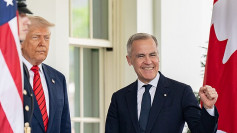Telefonaktiebolaget LM Ericsson, commonly referred to as Ericsson, claimed to have accidentally made payments to the Islamic State of Iraq and the Levant (ISIS). The company's U.S.-listed shares had dropped by nearly 14% during trading Wednesday. Its Stockholm-listed stocks also dropped following the news.
The Swedish telecommunications company said it made the payments while it was attempting to expand its operations in Iraq. CEO Borje Ekholm admitted that they had identified some suspicious transactions dating back to 2018, which includes expenses for "transport routes" through regions controlled by ISIS.
Ekholm said they have not yet determined who the final recipients of the payments were or if they were members of the terrorist organization. On Tuesday, Ericsson said that it was continuing to invest a substantial amount of time and money in an internal investigation over transactions made between 2011 and 2019 in the Middle East.
Ekholm said some of the transactions that were discovered were in violation of the company's compliance rules and its business ethics code. He added that this included transactions made that were breaches of its corruption policies. Some employees that were operating in Iraq violated those rules by making "monetary donations," funding unapproved travel expenses, and paying off sales agents and consultants.
In a separate statement, Ericsson said its investigation has thus far uncovered some payments made to intermediaries that assisted employees in finding alternate transport routes to evade Iraqi Customs. The company added that the transactions occurred at a time when ISIS had controlled those same transport routes.
The company did not state if it had already informed the Department of Justice of the finding from its internal investigation. Ekholm said he would make public any new facts that come to light as their investigation into the transactions continues.
The investigation was sparked by anomalous spending claims in Iraq dating back to 2018. The probe was completed and concluded a year later, but the company did not reveal the findings of the investigation since they deemed it to be immaterial.
The Swedish company, which pioneered telecommunications technologies such as Bluetooth and 5G, had previously been embroiled in corruption scandals. In 2019, the company had agreed to pay a more than $1 billion settlement to the Department of Justice over its investigation into alleged corruption and bribery activities.
Ericsson was accused of bribing government officials over many years in countries such as Vietnam and China, violating the U.S. Foreign Corrupt Practices Act. In October last year, the DOJ determined that the company had breached its obligations by failing to provide certain documents stipulated under a deferred prosecution agreement.






